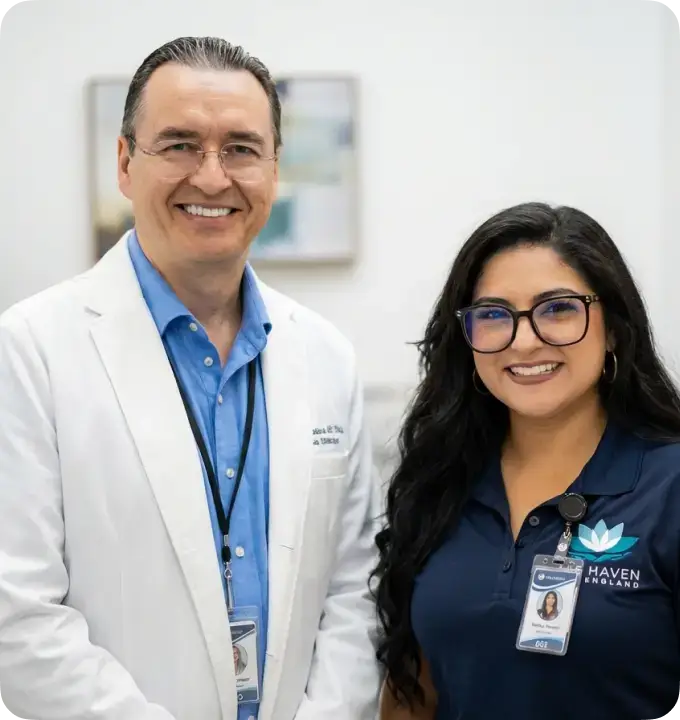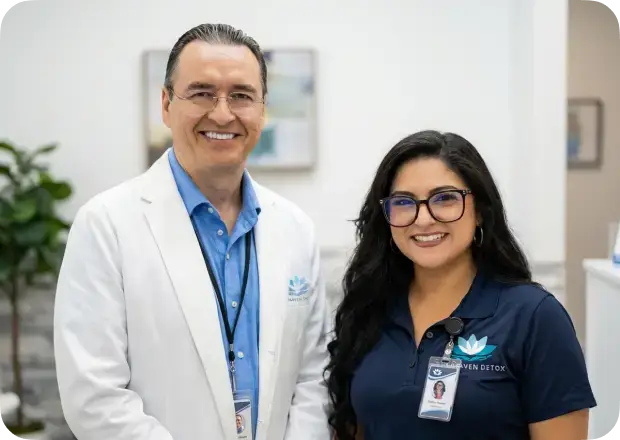
Get Help Today 24/7

Co-occurring disorders refer to when a person has both a mental health issue and a substance use disorder at the same time. These conditions often interact and worsen each other. For example, someone might struggle with both depression and alcohol dependence. In the United States, about 9.2 million adults experience co-occurring disorders each year, requiring help for both issues at once.
Early detection is crucial for effective treatment, preventing conditions from worsening and improving recovery chances. Recognizing signs like changes in behavior or mood swings can lead to quicker intervention. Integrated treatment, where mental health and addiction professionals work together, leads to better health, fewer relapses, and improved daily functioning. This approach reduces hospitalization risk and enhances quality of life. Addressing both conditions is essential for positive outcomes, helping individuals rebuild their lives and maintain long-term recovery.
Co-occurring disorders combine mental health and substance use challenges. Here’s what you need to know:
Co-occurring disorders require integrated treatment that addresses both mental health and substance use simultaneously, not separately. Our dual diagnosis treatment programs combine psychiatric care with medically supervised detox and inpatient rehabilitation to treat both conditions together. We use comprehensive screening and assessment tools to create personalized treatment plans that address the complex interactions between mental health and addiction. Treatment is available at our facilities in Arizona, Arkansas, Florida, Massachusetts, New Jersey, and Puerto Rico. See if your insurance plan covers dual diagnosis treatment or review our insurance resources to understand your coverage options. Contact our team to schedule a comprehensive assessment and begin integrated treatment for co-occurring disorders.
Screening and assessment programs are vital for identifying co-occurring disorders early. These programs help ensure individuals receive the appropriate treatment for both mental health and substance use issues.
Several barriers can hinder the accurate diagnosis of CODs. One significant barrier is the stigma associated with both mental health and substance use issues. This stigma can prevent individuals from seeking help, fearing judgment or discrimination.
Another barrier is the complexity of symptoms. Symptoms of mental health disorders and substance use disorders often overlap, making it difficult for healthcare providers to distinguish between the two. Limited access to integrated care is also a problem. Many treatment centers focus on either mental health or addiction, but not both, which can lead to incomplete or ineffective treatment.
Comprehensive assessment offers numerous benefits for individuals with co-occurring disorders. First, it provides a thorough evaluation of both mental health and substance use issues, ensuring that no aspect of a person’s condition is overlooked. This leads to a more accurate diagnosis and a tailored treatment plan that addresses both disorders simultaneously.
The comprehensive assessment also helps identify any underlying or related issues, such as trauma or physical health conditions, which may be contributing to the individual’s struggles. By understanding the full scope of a person’s condition, healthcare providers can offer more effective and personalized treatment.
Effective screening programs are essential for identifying mental health and substance use disorders early. These programs must use reliable tools and methods to ensure accurate and comprehensive evaluations.
Standardized screening tools, like the Patient Health Questionnaire (PHQ-9) and the Alcohol Use Disorders Identification Test (AUDIT), are crucial for identifying co-occurring disorders. These scientifically validated tools provide a consistent and unbiased method for assessing individuals, ensuring accurate diagnoses. By asking specific questions about symptoms and behaviors, they help healthcare providers gather key information quickly.
Standardized tools enable fair and accurate evaluations, allowing comparisons across different populations and settings. This consistency aids in identifying trends and improving treatment approaches for co-occurring disorders.
Initial screening and detailed assessment serve different but complementary purposes in the evaluation process. Initial screening is a quick process to identify individuals with co-occurring disorders. It typically involves brief questionnaires or interviews that cover primary symptoms and behaviors. The goal is to determine whether a more comprehensive assessment is needed.
Detailed assessment, on the other hand, is a thorough evaluation that explores the nature and extent of the disorders. This process includes in-depth interviews, psychological testing, and a medical and personal history review. Detailed assessments provide a comprehensive understanding of the individual’s condition, allowing for a more accurate diagnosis and personalized treatment plan.
Self-reported questionnaires are vital in screening and assessing co-occurring disorders. They allow individuals to share their symptoms and experiences. Examples include the Beck Depression Inventory (BDI) and the Drug Abuse Screening Test (DAST). They are user-friendly and quick, making them suitable for initial screenings.
While helpful, self-reported information may need to be more accurate due to misunderstandings or reluctance to share sensitive details. Hence, these questionnaires complement other assessment methods like clinical interviews for a thorough evaluation. They provide valuable insights for healthcare providers to create effective treatment plans.
Screening and assessment are crucial for co-occurring disorders as they help clinicians gather essential information about a person’s mental health and addiction issues.
Screening and assessment for co-occurring mental health and substance use disorders face several challenges. These include stigma and patient reluctance, co-morbidity and symptom overlap, and resource limitations and accessibility issues.
The stigma surrounding mental illness and substance abuse can prevent individuals from seeking help. Patients may fear judgment or discrimination, leading to reluctance to disclose their symptoms. This reluctance hinders accurate screening and assessment, as clients might not provide critical information necessary for diagnosis.
Education and counseling are essential to reducing stigma, motivating clients, and encouraging open communication. Counselors must create a safe, nonjudgmental environment to help clients feel comfortable sharing their experiences. Addressing stigma is crucial for improving the effectiveness of screening and assessment programs.
Co-morbidity, where individuals have multiple mental disorders, and symptoms overlap, complicates the screening process. Symptoms of severe mental illnesses can mimic or mask those of substance abuse, making it challenging to distinguish between the two.
For example, anxiety and depression can occur with substance use disorders, leading to confusion in diagnosis. Accurate assessment requires thorough evaluation by trained professionals who can differentiate between overlapping symptoms. Utilizing dual diagnosis screening instruments can help identify co-occurring disorders, ensuring that clients receive appropriate and effective substance abuse treatment.
Resource limitations and accessibility issues pose significant challenges to effective screening and assessment. Many communities lack sufficient mental health and substance abuse treatment resources, making it difficult for clients to access the care they need. Long wait times, insufficient funding, and limited training counselor availability can impede the assessment process.
Additionally, individuals in the justice system or those with serious mental illnesses may face additional barriers to accessing services. Improving resource allocation, increasing funding for mental health services, and expanding training courses for healthcare providers are essential steps in overcoming these challenges and ensuring comprehensive care for all individuals.
Treating co-occurring mental health and addiction issues involves combining therapies for both problems. This includes therapy, medication, and addiction programs. Integrated care helps manage symptoms and reduce substance use. Treatment can happen in outpatient clinics or residential programs based on severity.
The Haven Detox is dedicated to create personalized treatment plans tailored to each individual’s needs, considering vital elements such as family support and long-term recovery goals. With proper treatment, individuals can learn to cope with challenges, reduce substance use, and improve their quality of life. Motivation, accurate assessment, and evidence-based programs are key components of success.
Get answers about your cost / coverage now.
Your information will be kept private
Let’s talk about what’s going on — no judgment. (We’ve been there before ourselves). No one will know you inquired and there is no commitment to call.
Need someone to talk to? We’re always here—day or night.
Ask questions, get guidance—no pressure, no obligation.
Your story stays with us. Confidential support, always.


Why Wait?
Get Answers Now
You’re here because you know you need help. Let’s talk through it together. There’s no commitment and it’s 100% confidential even to check your insurance.
100% Confidential


Why Wait?
Get Answers Now
You’re here because you know you need help. Let’s talk through it together. There’s no commitment and it’s 100% confidential even to check your insurance.
100% Confidential